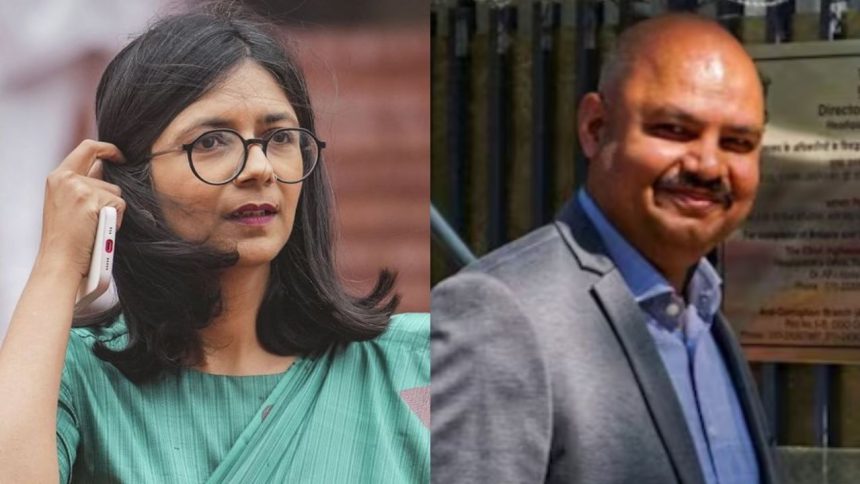New Delhi: The Supreme Court on Monday granted bail to Delhi chief minister Arvind Kejriwal aide Bibhav Kumar for allegedly assaulting AAP Rajya Sabha MP Swati Maliwal. The bail was granted by a bench of Justices Surya Kant and Ujjal Bhuyan. This came after recent ruling by the SC has mentioned that bail should be the norm.
The apex court said that Bibhav has already spent over 100 days in jail and also chargesheet has been filed in the case. The court, however, imposed certain conditions on his bail.
What are those conditions?
- He shall not be restored as personal secretary of Delhi chief minister
- Shall not be associated with the political office of CMO
- The SC also barred him from entering the chief minister’s residence till all witnesses are examined
What is the case against him?
Bibhav allegedly assaulted Maliwal at Kejriwal’s official residence on May 13 this year. An FIR was registered against him three days later under various sections of the Indian Penal Code. On May 18, he was arrested by the Delhi Police.
The incident happened when Arvind Kejriwal was on bail to campaign for the then ongoing general elections. Maliwal had accused Kejriwal of not supporting her. “I am very sad because Arvind Kejriwal, who expresses his views on every issue, did not consider it necessary to support me, take a stand for me, or address my issue,” news agency ANI had quoted the MP as saying.
HC had denied bail to Bibhav
“To date, he has neither rang me nor come to meet me and he has not helped me anywhere. The entire party and he are standing with Bibhav Kumar at this time. So in such a situation, I am very sad because Arvind Kejriwal, who expresses his views on every issue, did not consider it necessary to support me on my issue, to take a stand for me, or to talk about my issue,” she had added further.
Earlier, the Delhi high court had denied bail to him stating he enjoys “considerable influence”. His bail pleas were also dismissed by trial courts on two occasions.
